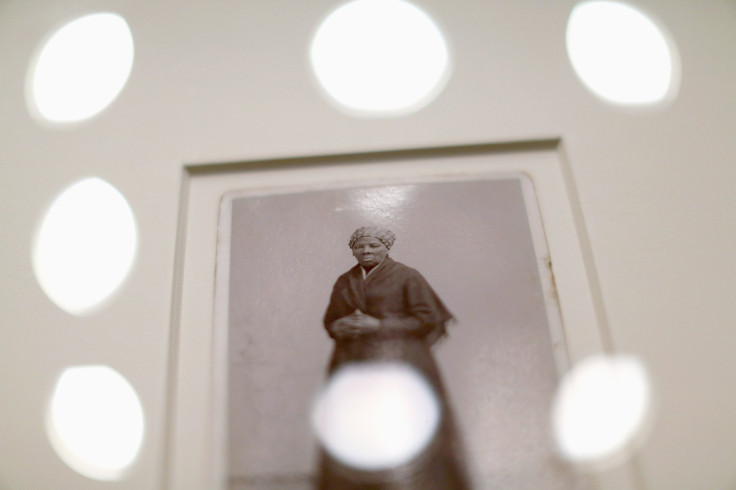Harriet Tubman Birthday: 5 Facts To Celebrate The Famed Abolitionist

Every Jan. 29, the United States celebrates the birth of Harriet Tubman, the African-American abolitionist born into slavery who helped guide hundreds of slaves out of the South to freedom in the North. Born in 1820 as Araminta Harriet Ross, she escaped slavery in 1849 and became a guide along the Underground Railroad, reportedly making 19 rescue missions.
After serving as a spy for the Union Army during the U.S. Civil war, she died of pneumonia in 1913. On the celebration of her birth, here are a couple of facts you may not have known about the abolitionist leader, compiled from PBS, Mental Floss, the Harriet Tubman Historical Society and History.com.
1) She was nicknamed “Moses”
While taking slaves to freedom, some called her Moses, in reference to the biblical prophet who led the Israelite slaves out of Egypt. During her trips along the Underground Railroad, she allegedly never lost a single passenger.
2) A high bounty
Even though she lived in the North, Tubman was still a fugitive slave, meaning if she were caught she could have been put back into slavery. A high bounty was placed on her, but she would apparently start her rescues on Saturday so she and the escaped slaves could have the full weekend before newspapers ran the ads for her bounty in the Monday editions.
3) Tubman and the women’s rights movement
Tubman not only advocated for the abolition of slavery, but also for women’s rights when it was still highly controversial. While she couldn’t read, she still gave speeches on her experiences as a woman slave.
Harriet Tubman, conductor of #UndergroundRailroad: I never ran my train off the track & I never lost a passenger. pic.twitter.com/GwRJHDQ1mh
— Jerry Mitchell (@JMitchellNews) January 27, 20164) She was a spy for the Union
Tubman notoriously didn’t have many distinctive features — she was short and had several teeth missing — which helped her as a spy and a scout for Col. James Montgomery. She passed undetected into enemy territory to collect information, but still had to pay her own way through her time in the war by selling pies and root beer.
5) She had her own way to keep crying children from giving away the escaped slave parties
Trying to travel across enemy territory quietly can be hard enough with adults, but Tubman often had to worry about tired, and worse, crying children. Worried a crying child would give away their location, Tubman would sometimes drug the children with opium, easily found at the time.
© Copyright IBTimes 2024. All rights reserved.











